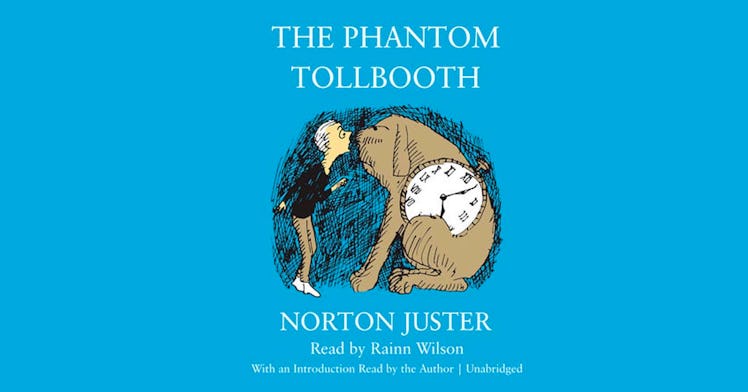Norton Juster RIP: Why Grown-Ups Should Reread ‘Phantom Tollbooth’ ASAP
Beloved author Norton Juster has died at 91 years old. The wisdom of his most famous book is just as good for parents as it is for kids.

If I’m being honest, there are several days in my adult life that I relate to Milo at the start of Norton Juster’s The Phantom Tollbooth. When I was a kid, I never really got Milo’s deal. But I do now. He’s lazy, bored, and constantly indecisive. He never knows what “to do with himself” and it isn’t just “sometimes, but always.” Milo isn’t a bad kid, and the reader is never meant to think he is. But, the book does begin with a character who needs to get his collective shit together. For children, Milo’s crankiness is a cautionary tale, for adults, it’s a wake-up call.
Norton Juster, the author of The Phantom Tollbooth has died at the age of 91 years old. This is probably not a tragedy. Juster lived a full and amazing life, and his legacy, via Tollbooth is all about tolerance and whimsy. He wrote countless children’s books — both of the chapter book variety and several picture books, too — but he’ll forever be associated with Tollbooth, and for good reason. The Phantom Tollbooth isn’t just one of the best children’s chapter books of all time, it’s one of the best novels of all time period. It’s also a book that might work just as well for certain anxious adults as it does for young children. And, if you’ve somehow never read The Phantom Tollbooth, here’s one thing someone will never tell you about it: The reason why people talk about kids’ media that works on multiple levels, for various audiences — from Lemony Snicket to Pixar — is directly connected to the brilliance of this book. Imagine there’s no Tollbooth, and you know what you have? A world of kids’ media that is devoid of irony and backhanded humor. Sure, A.A. Milne and Pooh predated Milo and Tock by about 40 years, but the smart invention of Juster’s was that his child-protagonist wasn’t some rosy-cheeked sweetheart like Christopher Robin or a misunderstood underdog like Charlie and that famous Cholocate Factory. Milo’s deal is that he’s a little shit. That’s what makes The Phantom Tollbooth so great. There’s one kid, and that kid needs to change his outlook otherwise he’ll get trapped in the doldrums, which of course, are a literal place you can actually get trapped in. The imagery and symbolism of The Phantom Tollbooth is so obvious and over the top that you could imagine a giant gong sounding every time, Juster makes a point. But, the book is so damn funny that you don’t have time to roll your eyes at any of the moralizings. The whimsical world of Tollbooth is like if Yellow Submarine and The Point weren’t so creepy, or if Alice and Wonderland didn’t feature beheadings.
The Phantom Tollbooth is wonderful because it doesn’t just present life lessons as fables. It makes each chapter a minor adventure, which creates a series of catharses for the reader. Emotionally, The Phantom Tollbooth is like an herbal tea mixed with laughing gas. It will make you feel better, and give you a healthier emotional outlook on your life while you’re having a helluva good time. In 2006, while working in a bookstore in New York City, I got the chance to tell Norton Juster, in person, exactly why this book meant the world to me. Back then, as a twenty-something, I’d recently reread the book for the first time since having had it read to me as a young child. That re-reading was probably more life-altering than the first time I’d read the book, precisely because the story of Tollbooth serves as a reminder that our emotional funks can return. And when that happens, there are whimsical tools you can use to pull yourself out of your dysfunctional moods. The book also is validating — those moods are normal. Sometimes you need to have a change of pace to get your life back on track. Sometimes that adventure can take place in your room.
When I thanked Juster for writing The Phantom Tollbooth all those years ago, he just nodded and smiled, clasped my hand, and said, “I’m glad.” Of course, he’d heard this before. Of course, countless children and adults have said their life was changed by The Phantom Tollbooth. When he was alive, Juster knew there was power in this little book, but like the real-ife Santa Claus he resembled, Juster clearly viewed this book — and all his other writings – as a gift. As time marches on, so few so-called children’s classics really stand the test of time. In that, way, The Phantom Tollbooth stands alone, a prescient and emotional gift that keeps on giving.